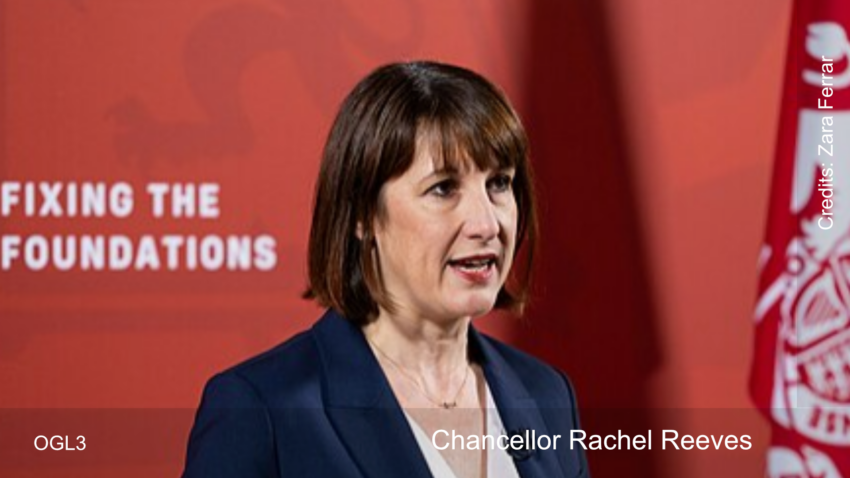The recent Budget announcement has unveiled a significant tax rise, primarily targeting employers. The government aims to raise £40 billion through increased National Insurance contributions. This tax hike has sparked concerns among businesses and workers alike. Employers face a higher National Insurance rate and a lowered threshold for payments. Influential think tanks, government forecasters, and Chancellor Rachel Reeves have warned about the potential impact on wages.
- The new Budget introduces a substantial tax hike on employers, aiming to raise £40 billion primarily through increased National Insurance Contributions (NICs), sparking concerns over wage suppression and economic strain on businesses.
- The Office for Budget Responsibility (OBR) estimates that over three-quarters of the cost of NIC increases will be indirectly passed on to workers through smaller wage raises and potential price increases.
- Critics argue the NIC increase contradicts Labour’s promise of no tax hikes on working individuals, with warnings from think tanks like the IFS and the Resolution Foundation that this move may strain businesses, impact low-wage job availability, and hinder real wage growth.
- With constrained fiscal options, the government faces challenges in maintaining its economic goals, while opposition leaders warn that the Budget may stifle growth and place excessive burden on businesses and workers alike.
Chancellor Reeves explained on BBC that businesses might absorb these costs through reduced profits, resulting in smaller wage increases. The Resolution Foundation’s James Smith echoed this sentiment, stating that the tax will eventually manifest as reduced wages. This sentiment is shared by many who view the tax hike as a burden on working individuals.
Additional Budget measures, such as increased public service spending, are predicted to temporarily boost inflation. This could delay interest rate reductions, affecting people’s purchasing power. The government has promised economic growth as a priority, ensuring more money in people’s pockets by the end of the parliament.
The Labour Party’s election manifesto pledged no tax increases on working people, explicitly excluding VAT, National Insurance, or income tax hikes. Critics argue that the rise in employers’ National Insurance Contributions contradicts this promise. However, the government maintains that the tax changes do not directly target individual workers.
The Office for Budget Responsibility (OBR) forecasts that by 2026-27, 76% of the NICs increase cost will be passed onto workers through reduced pay raises and increased prices. The OBR expects average household income growth to remain slow, although slightly better than the 0.3% annual increase seen between 2019 and 2024. This period was marked by challenges like Brexit, the pandemic, and energy price hikes following Russia’s invasion of Ukraine.
An ageing population further strains public finances, particularly through rising healthcare demands. By 2028, real weekly wages, adjusted for inflation, will have grown just £13 over two decades, according to the Resolution Foundation.
The Institute for Fiscal Studies (IFS) warns that larger firms hiring low-wage workers will feel the NICs hike most, potentially reducing minimum wage job availability. Additionally, lower wage increases could result in the measure raising less than the projected £25 billion, possibly only £16 billion.
IFS director Paul Johnson anticipates further spending and tax increases midway through the parliament. He criticized the chancellor for projecting unrealistically low future spending to balance fiscal figures. Johnson foresees more spending and potential tax hikes unless economic growth exceeds expectations.
Economic forecasts published alongside the Budget suggest UK growth will initially rise over the next two years, then slow due to Budget measures likely to increase prices and interest rates. Johnson described these forecasts as “pretty awful.”
The Resolution Foundation also highlighted the challenge of frontloading public service spending increases, anticipating a difficult Spring Spending Review. Chancellor Reeves has limited fiscal flexibility, as her debt rule allows some leeway, but most funds have already been allocated. A small economic downturn could necessitate further tax increases, the think tank noted.
Opposition parties quickly criticized Reeves, with Shadow Chancellor Jeremy Hunt accusing her of burdening businesses to fund public spending. He warned of potential lower growth, living standards, wages, and employment. Liberal Democrats leader Ed Davey argued that raising employer’s National Insurance is a job and economic burden, worsening the health and care crisis by affecting small care providers.
Prime Minister Sir Keir Starmer defended his government’s approach, emphasizing a responsible plan to stabilize the economy’s foundations. As the government implements significant spending and tax changes, the political differences between major parties become increasingly evident.

